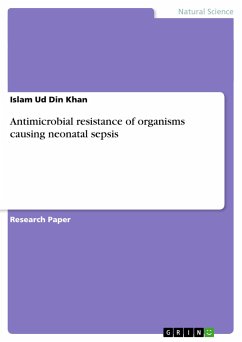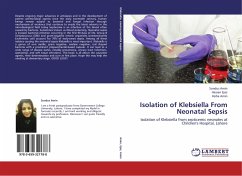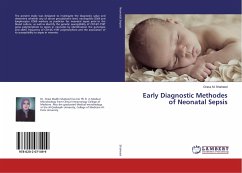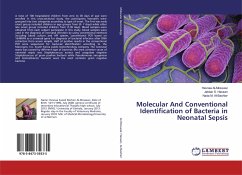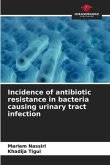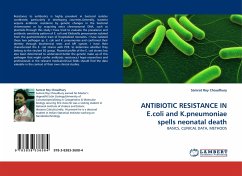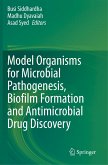Research Paper (postgraduate) from the year 2013 in the subject Biology - Micro- and Molecular Biology, grade: A, , language: English, abstract: To investigate the spectrum of organisms causing neonatal sepsis in Peshawar, Pakistan and to assess their sensitivity to various groups of drugs.Methods: Blood taken from newborn babies admitted to the special care baby unit at the Khyber Teaching Hospital with a clinical diagnosis of neonatal sepsis was cultured. The data obtained from October 1997 to December 2000 were analysed and the results tabulated.Results: A total of 1598 blood cultures were taken; 1003 were positive (positivity rate 62.8%).Escherichia coli was the most common organism found (36.6%), followed by Staphylococcus aureus (29.5%), Pseudomonas (22.4%), Klebsiella (7.6%), and Proteus (3.8%). No group B streptococcus was grown. Listeria monocytogenes was found in one cerebrospinal fluid culture. E coli and Pseudomonas showed a high degree of resistance to commonly used antibiotics (ampicillin, augmentin, and gentamicin), a moderate degree of resistance to cephalosporin (cefotaxime, ceftzidime, and ceftrioxone), and low resistance to drugs not used for newborn babies (ofloxacin, ciprofloxacin, and enoxabid). S aureus showed a low resistance to all three groups of antibiotics.Conclusion: Neonatal sepsis remains one of the leading causes of neonatal admission, morbidity, and mortality in developing countries. Gram negative organisms are the major cause of neonatal sepsis in Peshawar. Such organisms have developed multidrug resistance, and management of patients infected with them is becoming a problem in developing countries.
Hinweis: Dieser Artikel kann nur an eine deutsche Lieferadresse ausgeliefert werden.
Hinweis: Dieser Artikel kann nur an eine deutsche Lieferadresse ausgeliefert werden.

